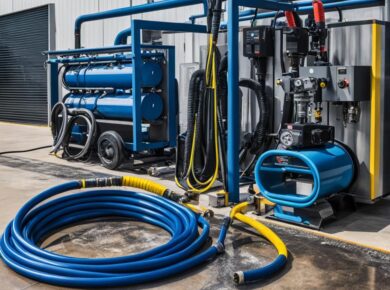When it comes to safeguarding your home against the relentless forces of nature, hurricane impact windows stand out as a crucial investment. Homeowners in hurricane-prone areas often find themselves grappling with two vital aspects: the upfront costs of these protective features and the potential insurance discounts they may unlock. Understanding the financial implications of installing hurricane impact windows can profoundly influence your decision-making process. This article serves as a comprehensive guide, exploring the costs associated with hurricane impact windows while examining how they relate to insurance discounts.
Understanding Hurricane Impact Windows
Hurricane impact windows are specifically designed to withstand high winds and flying debris, providing a vital line of defense during extreme weather events. Unlike standard windows, these windows are made from durable materials and feature advanced engineering to ensure they remain intact even under the most severe conditions. With the ever-increasing frequency of hurricanes, many homeowners are recognizing the importance of upgrading their windows to protect their property and loved ones.
Calculating the Cost of Hurricane Impact Windows
The cost of hurricane impact windows can vary widely based on several factors. First, let’s delve into the primary elements that affect pricing.
1. Window Size and Style
The size and style of the windows you choose will significantly impact the overall cost. Larger windows or custom designs typically come with a higher price tag. Standard sizes are generally more affordable, but they may not always fit the aesthetic or functional requirements of your home. It’s essential to carefully consider the balance between functionality and visual appeal.
2. Material Quality
Impact windows are available in various materials, including vinyl, aluminum, and wood. Vinyl tends to be the most cost-effective option, while aluminum offers enhanced durability. Wood windows can provide a classic look but may require more maintenance. The material you select can influence both the initial investment and long-term upkeep costs.
3. Installation Complexity
The installation process for hurricane impact windows can also affect pricing. If your home requires structural modifications to accommodate the new windows, expect additional labor costs. Hiring a reputable contractor who specializes in impact window installation can help ensure that the process is handled correctly, which, in turn, can save you money in the long run by avoiding costly mistakes.
4. Labor Costs
Labor costs can vary significantly depending on your location and the complexity of the installation. In some areas, skilled labor is in high demand, leading to increased costs. Always obtain multiple quotes from contractors to ensure you’re getting a fair price for the installation.
5. Permits and Regulations
Before installing hurricane impact windows, you may need to secure permits, depending on local building codes. These additional costs can vary widely by region and should be factored into your overall budget.
Estimating the Total Cost
On average, homeowners can expect to pay anywhere from $15 to $100 per square foot for hurricane impact windows, including installation. For a standard-sized window, this could translate to a total cost ranging from $300 to $1,500 per window. Considering an average home may have anywhere from 10 to 20 windows, the overall investment could range from $3,000 to $30,000.
While this may seem like a substantial amount, it’s crucial to evaluate it within the broader context of property protection and potential savings on insurance premiums.
Insurance Discounts for Hurricane Impact Windows
Investing in hurricane impact windows can lead to significant financial benefits, especially regarding your homeowners insurance. Many insurance companies offer discounts to policyholders who have taken proactive steps to protect their properties. Let’s explore how these discounts work.
1. Understanding Insurance Premiums
Homeowners insurance premiums are typically based on various risk factors, including the location of your home, the age and condition of your roof, and the type of windows you have. By installing hurricane impact windows, you demonstrate to your insurer that you are minimizing potential risks. This proactive approach can lead to lower premiums.
2. Potential Discount Amounts
The discounts offered for impact-resistant windows can vary significantly by insurance provider. On average, homeowners may see discounts ranging from 5% to 15% on their premiums after replacing standard windows with impact-resistant ones. In some cases, the total savings can amount to hundreds of dollars each year.
3. The Importance of Documentation
To take advantage of these discounts, it’s crucial to keep thorough documentation of your window installation. This includes receipts, warranties, and any certifications related to the impact resistance of your windows. When applying for the discount, your insurance company may require proof of these upgrades.
4. Long-Term Financial Benefits
While the upfront cost of hurricane impact windows may seem daunting, the long-term savings can make the investment worthwhile. Over time, the reduction in insurance premiums combined with the peace of mind that comes from enhanced protection can significantly offset the initial expenditure.
Balancing Costs and Benefits
Now that we’ve examined the costs associated with hurricane impact windows and the potential insurance discounts, it’s essential to weigh these factors against your specific circumstances.
1. Risk Assessment
Consider your location’s hurricane risk. If you live in an area prone to frequent storms, investing in impact windows may be a wise decision. Conversely, if you’re in a region with minimal hurricane activity, it may be worth exploring alternative options for home protection that align with your budget.
2. Home Value Considerations
Hurricane impact windows can enhance your home’s value. Potential buyers often favor properties that already have impact-resistant features, viewing them as an indicator of a well-maintained home. If you plan to sell in the future, this investment could yield a substantial return.
3. Personal Comfort and Safety
Beyond financial considerations, personal comfort and safety should also play a role in your decision. Knowing that your home is better equipped to withstand a hurricane can alleviate anxiety during storm season, providing peace of mind for you and your family.
Final Thoughts
The decision to invest in hurricane impact windows is not merely a financial one; it encompasses considerations of safety, comfort, and long-term value. By understanding the costs associated with these windows and the potential discounts available through your insurance provider, you can make an informed choice that aligns with your needs and budget.
As you navigate this journey, keep in mind that every home is unique, and the best course of action will depend on your specific situation. Engage with trusted professionals, conduct thorough research, and weigh the pros and cons carefully. In doing so, you’ll be well on your way to making a decision that protects your home for years to come.

